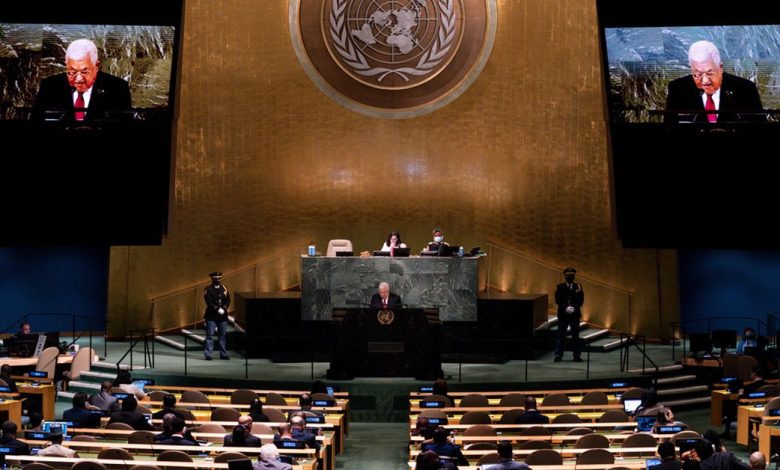Australia votes with wide UN majority to grant Palestine new rights and revive United Nations membership bid

The vote, which passed last night by 143-9 with 25 abstentions, also called on the UN Security Council to “favorably reconsider” its request to become the international body’s 194th member.

Australia’s vote was the most significant show of support for Palestine at the UN, as it backed calls for an immediate humanitarian ceasefire in Gaza and the unconditional release of hostages.
But it came with some caveats. After the vote, Australia’s permanent representative to the UN, James Larsen, described the expansion of Palestinian rights as “modest” and described the part expressing a desire for full Palestinian statehood as “not what we would propose”.
A yes vote, he said, was “unwavering support for the two-state solution” and “a clear rejection of Hamas’ goals and methods,” he said.
“Like many other countries, our vote on this resolution is not a bilateral recognition of Palestinian statehood,” Larsen told the General Assembly in New York.
“However, Australia no longer accepts that recognition can only come at the end of the peace process.”

Australia, which is not a member of the UN Security Council so did not participate in the April vote, has long advocated a two-state solution but does not formally recognize a Palestinian state.
His support for the General Assembly vote came after some of the resolution’s language was watered down over concerns about a line giving Palestine, which remains an observer state, “the rights and privileges necessary to ensure its full and effective participation” in the United Nations. on an equal footing with the Member States’.
Three Western diplomats told The Associated Press on condition of anonymity that these concerns came not only from the United States, but also from China and Russia.
The final resolution “determines” that the State of Palestine qualifies for membership – removing the original text that, in the judgment of the General Assembly, it is a “peace-loving state”.

He therefore recommends that the Security Council reconsider his request “favorably”.
The resolution also emphasized “unwavering support for the two-state solution of Israel and Palestine living side by side in peace and security within recognized borders, based on the pre-1967 borders.”
Deputy US Ambassador Robert Wood made it clear after the vote that the Biden administration opposed the resolution and would likely veto any future rerun of the Security Council vote.
“This resolution does not resolve the concerns about the Palestinian membership application that were raised in April in this House through the admissions committee process,” he said.
“And if the Security Council considers the Palestinian membership application as a result of this resolution, there will be a similar result.”

The US was among the nine countries that voted against, along with Israel.
According to the UN Charter, prospective UN members must be “peace-loving” and the Security Council must recommend their admission to the General Assembly for final approval. Palestine became a non-UN observer state in 2012.
The renewed push for full Palestinian membership in the UN comes after the war in Gaza put the more than 75-year-old Israeli-Palestinian conflict in the spotlight.
At numerous council and assembly meetings, the humanitarian crisis facing Palestinians in Gaza and the killing of more than 34,000 people in the territory, according to Gaza health officials, has sparked outrage from many countries.
The war began with a surprise attack by Hamas in southern Israel on October 7, in which the militant group killed around 1,200 people, mostly civilians, and took another 250 hostage.
Under long-standing legislation from the US Congress, the United States is required to end funding to UN agencies that grant full membership to a Palestinian state – which could mean cutting off membership and voluntary contributions to the UN from its largest donor.
To address the concerns of China and Russia, the final resolution decided “exceptionally and without precedent” to accept the rights and privileges in the annex.
The draft also adds a provision in the annex on the question of voting, stating categorically: “The State of Palestine, in its capacity as an observer State, shall not have the right to vote in the General Assembly or to put forward its candidacy to UN bodies.”
The final list of rights and privileges in the draft annex includes giving Palestine the right to speak on all issues, not just those related to the Palestinians and the Middle East, the right to propose agenda items and respond in debates, and the right to be elected as officers in the main committees of the assembly.
It gives the Palestinians the right to participate in the UN and international conferences convened by the UN, but drops their “right to vote” from the original draft.
– reported the Associated Press



